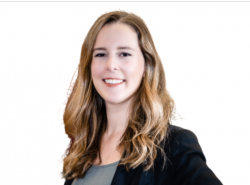.png)
The future is now: Ian Burgess on how Validere’s technological innovation is shaking up the energy industry
“Don’t fall in love with your technology. Fall in love with your customer.” Ian Burgess, Validere’s CTO, sat down with Fotis Georgiadis at Authority Magazine to share his journey with Validere. Keeping reading to hear more about how Validere’s technological innovation will shake up the tech scene.
Ian was introduced to the energy industry in the aftermath of the Lac Megantic rail disaster. From the post-accident investigation, it was learned that dissolved gas content in crude transported by rail at the time varied widely and could sometimes be dangerously high for standard tank cars. After being approached by the Federal Railroad Administration, Ian learned that the world’s largest supply chain operated with little visibility into the composition or quality of many commodities. From this point on, Ian and Validere’s CEO, Nouman Ahmad, set out to tackle this large fundamental gap. Along the way, they have been joined by the brightest minds in the industry to help track product quality in real time and unlock operational and environmental efficiencies.
To accomplish this, Validere has built a platform that provides real-time system of record for product quality data. We then help clients improve operations and drive efficiency by:
- Making this validated data accessible and actionable.
- Using predictive analytics to derive the maximum scope of useful information from the data.
- Enabling clients to use this data to make better decisions operationally, logistically, and environmentally
As Validere continues to innovate, the company is building machine learning models that are helping the energy industry to be far more agile, lean, and capital efficient. Validere is helping usher one of our most important legacy industries into the digital age.
Ian believes that Validere will change the world by making the global supply chains for energy much more efficient, nimble, and resilient. He added that Validere’s products will also lay the groundwork for carbon intensity to be able to be actually measured and tracked through the supply chain, making it possible for companies to drive their carbon reduction systematically.
Lastly, here are five things Ian wish someone told him before he started:
Don’t fall in love with your technology. Fall in love with your customer.
When commercializing the results of scientific experiments that were not optimized around a commercial application to begin with, the odds of this being the perfect solution for any business problem is analogous to the odds of a random configuration of 1,000 2x4s being a designer house.
You ask for money, and you will get advice. You ask for advice, and you will get money.
Anchoring a first conversation on their pain points and what they are looking for is a much more efficient path to delivering lasting value than to anchor on why they should want what you already have.
Success correlates to the time average of your successes and failures, not the number of successes and failures.
The best outcomes we have achieved have always come from failing fast, recovering quickly from bad luck and getting as much out of good luck and good decisions for as long as possible. In contrast, our worst outcomes have come not from making many mistakes, but from getting stuck on one mistake for a very long time.
Media is not your customer.
When I was still in grad school our original hardware technology got a ton of press, not because it was that useful for any application, but because it was interesting and could make really cool visuals (e.g. a shot glass in which the word ‘drink’ changed to ‘drunk’ when it contained more than 20% alcohol). The early highs of press validation definitely got in the way of spending more time with customers early.
Being good to someone doesn’t mean being ‘nice’ to them all the time.
It feels good giving people praise and validation and it can feel uncomfortable giving direct feedback about areas of improvement, but learning is impossible without feedback. Sometimes holding back on constructive criticism can be more damaging to a person’s development than anything someone could say to them, no matter how direct. Words can hurt, but so can silence.

Tamara Teofanovic
Tamara Teofanovic is a Marketing Manager at Validere and previously worked in the Oil & Gas sector in Alberta.
